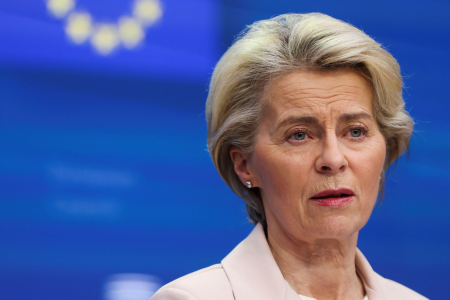A few months ago the new “Tsar” of Russia Vladimir Putin took the initiative to intervene in the Syrian crisis, overcoming the reservations and hypocrisy of the West.
He clearly recognized the threat of the Islamic State and situated it the war of cultures, directly accused the hidden and known financial backers of ISIS and methodically began aerial bombardments, striking primarily financial targets and oil transports to Turkey.
The truth is that the Russian president had his reasons. First off he wanted to secure Russian interests in the Middle East, face the terrorist front with enclaves in the Caucasus which pose a threat, to offer his good services to the nervous and spluttering Europe in order to have Brussels lift the embargo imposed after the Ukrainian crisis.
The major terrorist attacks – first the recent explosion of the Russian plane over Sinai, then the massacre in Paris – have justified his choice.
The French President Francois Hollande is trying to build an international font against Islamic terrorism on the basis on the Russian intervention against ISIS.
Just as it seemed that the plans were panning out, the Turkish involvement complicated things. The new “Sultan” Tayyip Erdogan felt uncomfortable when he saw the Russian intervention in Syria. He considers Syria to be the ‘soft underbelly’ of Turkey and he cannot tolerate any solutions there without his participation. By organizing the shooting down of the Russian warplane he sought to broadcast to the world that there can be no solution in Syrian without Turkey’s involvement.
He too has his reasons: He does not want Assad, he has supported ISIS and attempted to use them to eliminate the Syrian Kurds; he has his eyes set on the oil fields of Mosul and the greater region currently under jihadist control, which are valued at 2 trillion dollars.
The shooting down of the Russian warplane though is turning out to be an absolutely risky move. Russia is Turkey’s biggest trade partner.
The transactions between the two exceed 45 billion dollars per year and Erdogan benefited the most when Europe introduced the embargo against Moscow. Additionally about 4.5 million Russian tourists visit the neighboring country each year. The damage on the Turkish economy can be massive and capable of overturning any future profit expectations from the possible management of energy sources that are currently under ISIS control.
The worst of all though for Turkey and that this action places it in the same category of pro-jihadist countries, like Saudi Arabia. Putin has already accused Erdogan of attempting the Islamization of Turkey. Truth be told, the situation in the Middle East is becoming far more complicated and dangerous after the Russian warplane was shot down.
Since then nothing can guarantee peace in the greater region. Unfortunately we are too close to pretend that we will be unaffected. Greece is already in the path of jihadists terrorists on their way to Europe and with Turkey under pressure and willing to do anything, the security concerns that emerge means there can be no room for complacency.
Greece must keep its eyes open in these troubled modern times.
Antonis Karakousis



